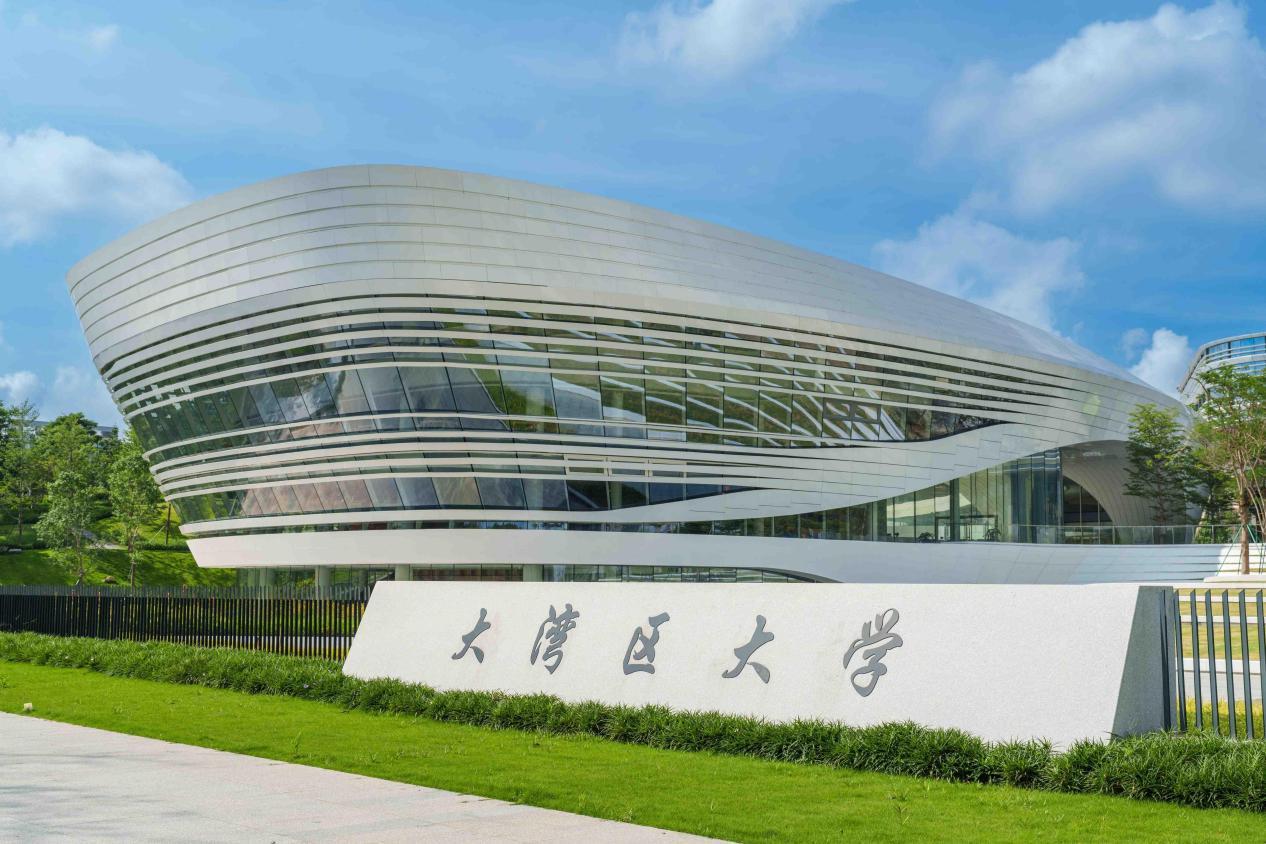




- BRNN
- BRI News
- BRNN News
- Database
Official Documents Polices and Regulations
Inter-government Documents International Cooperation BRI Countries
Business Guide Economic Data BRI Data
Trade
Investment Projects Latest projects
Cases - Content Pool

Photo shows the Songshan Lake campus of Great Bay University (GBU). (Photo provided by Great Bay University)
On June 19 this year, China's Ministry of Education officially approved the establishment of Great Bay University (GBU), located near Songshan Lake in Dongguan, south China's Guangdong province.
The term "Greater Bay Area," initially a purely geographical concept, has evolved to represent economic dynamism, technological innovation, and leadership. Now, it extends into the realm of higher education, with the creation of a new model for research universities.
What sets GBU apart?
The university's location plays a key role in its vision. Situated just minutes from Shenzhen, a renowned technology hub, GBU benefits from proximity to some of the Greater Bay Area's most cutting-edge scientific and technological resources. The region is home to tech giant Huawei, China's first pulsed spallation neutron source, and the Songshan Lake Materials Laboratory, among others. Notably, lunar soil samples brought back by the Chang'e-5 lunar mission have been sent to the region for study.
"Establishing the GBU near Songshan Lake fosters closer cooperation with local laboratories, large-scale scientific facilities, and leading tech companies. The excellent transport links to Guangzhou and Shenzhen further enhance our connectivity," explained Tian Gang, an academician of the Chinese Academy of Sciences and founding leader of the university.
The university features two campuses: the Songshan Lake campus, which is already in use, and the Binhai Bay campus, still under development.
GBU is strategically focused on science and engineering, offering high-quality education on a smaller scale. Its initial academic programs include mathematics, applied mathematics, physics, materials science and engineering, computer science and technology, and industrial engineering.
In its first undergraduate admissions in July, GBU enrolled 80 students in the physics program, with all available slots filled in the initial round. Despite its modest intake, the university boasts a robust faculty, with nearly 300 teaching and research staff, of whom 70 percent have experience at top-tier international universities and research institutions, including 10 academicians and 78 national-level leading talents.

Photo shows the Songshan Lake campus of Great Bay University (GBU). (Photo provided by Great Bay University)
"We encourage our undergraduates to work with different mentors and gain hands-on laboratory experience. Our curriculum is designed to align with national needs, social demands, industrial priorities, and global frontiers," said Zhao Jinkui, executive dean of the School of Material Science of the GBU.
GBU promotes a model of collaboration, including partnerships between universities, research institutes, and leading enterprises. These initiatives aim to align with the development needs and industrial planning of the Greater Bay Area. Guangdong province is spearheading top-level educational planning, optimizing the distribution of universities, and fostering a cluster of world-class institutions with distinctive Greater Bay Area characteristics.
Innovative institutions such as GBU, Southern University of Science and Technology, and Shenzhen University of Advanced Technology are reimagining educational models, advancing interdisciplinary research, and cultivating top-tier talent in emerging sectors.
Additionally, joint-venture universities such as Beijing Normal-Hong Kong Baptist University, The Chinese University of Hong Kong, Shenzhen, The Hong Kong University of Science and Technology (Guangzhou), and City University of Hong Kong (Dongguan) are promoting sustainable and collaborative development, contributing to a more open and high-level educational ecosystem.
Meanwhile, vocational institutions such as Shenzhen Polytechnic University and Guangdong Industry Polytechnic University are pushing the boundaries of vocational education, training professionals with both solid theoretical knowledge and practical skills to support the region's industrial transformation.
"We are advancing a higher education strategy focused on excellence, addressing gaps, and strengthening distinctive strengths, to develop universities of greater depth and quality," said Lin Rupeng, director of the Department of Education of Guangdong province.
Each year, Guangdong allocates dedicated funding to support universities in their pursuit of world-class status and the development of world-leading academic disciplines. This includes financial support for talent recruitment, research projects, platform development, and academic programs, while also granting universities greater operational autonomy, Lin added.

Tel:86-10-65363107, 86-10-65368220, 86-10-65363106